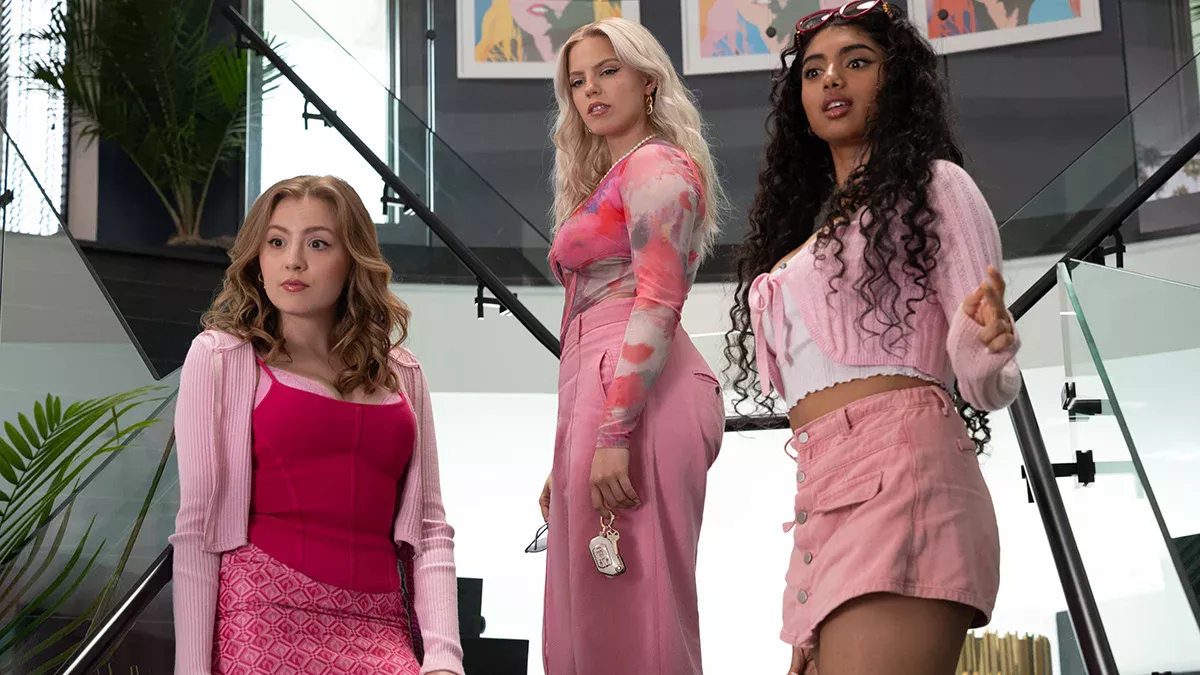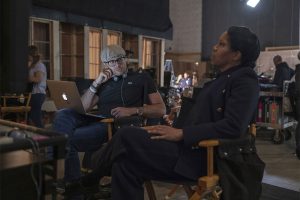
The original Mean Girls is a cultural touchstone for millennials of a certain age. One of the quintessential teen films of the 2000s, it helped further shoot Lindsay Lohan and Rachel McAdams into superstardom, bolstered Amanda Seyfried‘s profile, and cemented Tina Fey‘s pen as one of quick wit and acclaim. Phrases like “On Wednesdays, we wear pink,” “Stop trying to make fetch happen”, and “On October 3rd, he asked me what day it was” became part of the cultural lingo. You can’t just choose to make an iconic film, but when the script and filmmaking are there, it naturally happens.
Any kind of remake or rehash could thus be met with trepidation, especially since Mean Girls is so specific to an era. What could be gained from remaking it? Yet the fact that the new movie would be an adaptation of the Broadway musical version, and would again feature Tina Fey writing, at least created some optimism that it might be something a little different.
In the end, Mean Girls is just that: a little different, if nothing spectacular. In some respects, it feels like a dropped ball. It’s been twenty years since the original film, and social dynamics among teens have changed. The prevalence of social media and shifting standards about the amount of tolerable bullying and the forms of bullying have made the teen experience a new thing in the 2020s, even if there are still things universal to every generation.
But this 2024 version ends up feeling too worshipful and beholden to the original to do anything truly new. Well aware of how certain lines have become fan favorites, this film beats references to death even in places where they don’t feel natural. Further, because so much of the film simply recreates scenes we are familiar with, the moments where a different direction might have been taken to reflect modern times are missed. Indeed, aside from the occasional montages of Tik Toks, Tweets, and barrages of noise to emulate internet talk about an event, it hardly feels any different from the original — though there is one admittedly funny moment where Regina George yells at someone to take a picture and the entire cafeteria busts out their smart phones. This is one of the rare instances where the film has a cheeky comment about how times have changed, but they are few and far between.
The cast is fairly decent, with some actors feeling like an improvement on their predecessors, while others fall woefully short. Unfortunately, Angourie Rice simply doesn’t live up to Lindsay Lohan as Cady. Though Cady is a meek, socially inept character, she has a fierceness that Lohan brought that made her transition to being a “Plastic” feel natural. Rice plays Cady far too mousy most of the time, and though her time when she is “Plastic” works, it doesn’t feel like a transition from the character she was playing before. She’s also the weakest singer in the cast, leaving her songs feeling mostly forgettable. Christopher Briney is even less of a presence than the original Aaron Samuels, who was already a bland character. Bebe Wood as Gretchen is also a milquetoast take on the role.
Renee Rapp is stronger as Regina, as she is clearly a great singer and really brings the thunder in numbers like “Meet the Plastics” and “World Burn.” Her acting isn’t as strong as Rachel McAdams, but she still does a decent job. Busy Phillips is hilarious as Regina’s mother, topping even Amy Poehler‘s amusing turn. And while Avantika isn’t necessarily a better actress than Amanda Seyfried, her one shining moment is in the song “Sexy,” which is a hilarious number and one of the best in the film. One of the better singers in the cast is Auli’i Cravalho (Moana) as Janis. Her take on Janis at least does something different with the character from the original. Her song “I’d Rather Be Me” mostly shines because of her singing, and is reminiscent of Moana‘s “How Far I’ll Go.”
Speaking of, the musical aspect of the film on the whole is decent, if nothing too amazing. Despite the strength of the singing, too many of Regina’s numbers are done while she is sitting still and little onscreen is happening, which is an odd choice. When her numbers do have more going on, such as “Someone Gets Hurt” or “World Burn,” they are among the more visually flashy moments in the film. But too many of the numbers on the whole don’t utilize creative and fun sets, being mostly confined to school hallways or the grounds. The aforementioned “Sexy” is one of the few exceptions, utilizing Tik Tok in a inventive manner before a free-moving number through a house. The other standout is “Revenge Party,” taking on a fantasy quality with the school halls decorated in bright colors with grass and crazy costumes. It’s a shame the film only rarely lives up to the promise of these moments.
Mean Girls isn’t quite the stellar musical innovation on the material that one might want. It feels like it leaves too much potential unmined due to its clear worship of its source material. Still, lots of parts work because the underlying Mean Girls script still works. Tina Fey’s updated jokes in some areas are among the funniest material in either version. If only Mean Girls spent less time trying to make fetch happen and really followed the mantra laid down in “I’d Rather Be Me” to make itself truly new and unique.
Tell us your thoughts on Mean Girls below and rank it on Flickchart now!






